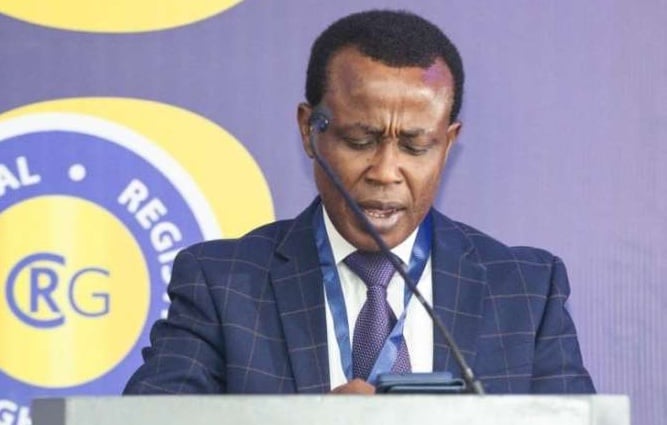The Bank of Ghana is planning a major digital overhaul of its Collateral Registry, aiming to integrate the platform with national credit bureaus, digital identity systems, and e-government services in a push to modernize credit delivery.
Speaking on behalf of the Second Deputy Governor, Mrs. Matilda Asante-Asiedu, Dr. Settor Amediku, Director of the Regional Branch Coordinating Office, disclosed the plans during the second day of the 15th-anniversary celebration of the Collateral Registry Department.
“The goal is to build a fully interoperable financial infrastructure that supports real-time data-driven decision-making and inclusive access to finance,” Mrs. Asante-Asiedu stated.
The integration is part of a broader strategy to respond to Ghana’s evolving digital economy and rising demand for innovative financial solutions.
The event’s discussions centred on fortifying the Secure Transactions Regime over the next five years, with a strong focus on enhancing enforcement mechanisms, regulatory collaboration, and stakeholder education.
Mrs. Asante-Asiedu reflected on the Registry’s founding mission, calling it a visionary response to one of the credit system’s biggest challenges: the lack of a transparent and efficient way to use movable assets as collateral.
“This limited the potential of a vital segment of our economy. By providing a centralized electronic platform for registering and searching security interests in movable property, the registry has empowered lenders to expand the scope of their credit portfolios, enabling borrowers, especially those without traditional land-based collateral, to unlock the value of their movable assets,” she said.
She emphasized how the Registry has transformed access to finance for micro, small, and medium-sized enterprises that had previously been locked out due to the absence of acceptable fixed collateral.
Mrs. Asante-Asiedu also applauded the contributions of key partners over the years. “Let me take this opportunity to thank you all for your unwavering support and collaboration over the years. Your contributions have been instrumental in making the registry transformative,” she added.
Head of the Collateral Registry Department, Fred Asiama Koranteng, called on stakeholders to deepen their support in developing a stronger secure transactions framework and ensure the Registry remains a cornerstone of Ghana’s credit infrastructure.
“Let’s harness the momentum from this celebration to drive goodness and innovation in the next decades,” he said.
Mr. Koranteng highlighted how the Registry has enabled movable assets such as livestock, vehicles, equipment, and inventory to be recognized as viable collateral. Since its inception in 2010, registered security interests on the platform have surged from just over 10,000 to 1.4 million by the end of 2024, with an average annual growth rate of 31.5%.
He noted that this digital transformation has improved transparency, streamlined processes, and boosted confidence in lending systems.
The Registry’s online platform has significantly reduced bureaucratic delays, making it easier for lenders and borrowers to register, search, enforce, and discharge security interests efficiently.
Panellists at the event agreed that the Registry has brought greater transparency and enforcement efficiency to Ghana’s credit space. They noted that lenders now have avenues to enforce claims without prolonged court processes and emphasized the Registry’s role in addressing information gaps that have historically hindered access to credit.
In their view, “The Collateral Registry is good for business in so far as it will help to make access to credit and facilities easier and to bridge the gap of information asymmetry.”


